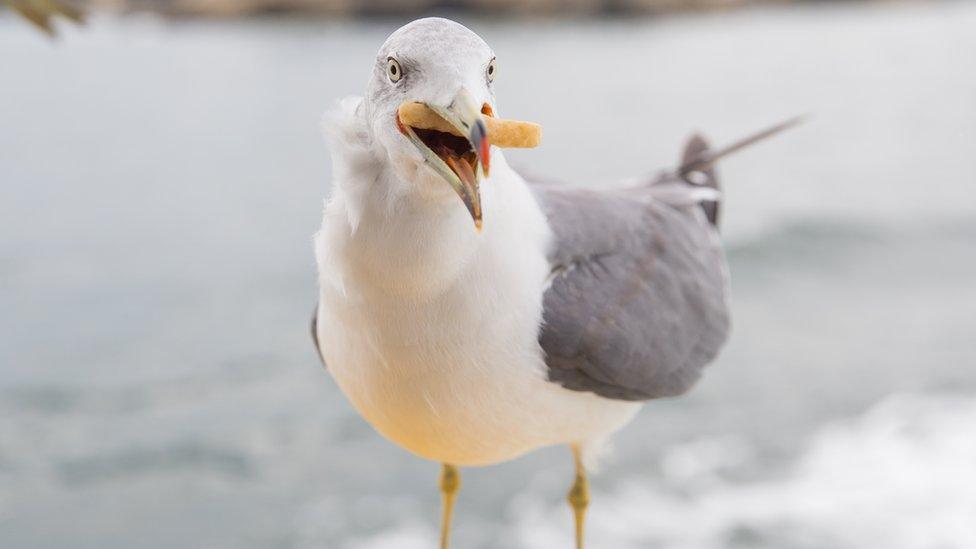Coronavirus lockdown: Gulls 'aggressive' over lack of food
- Published
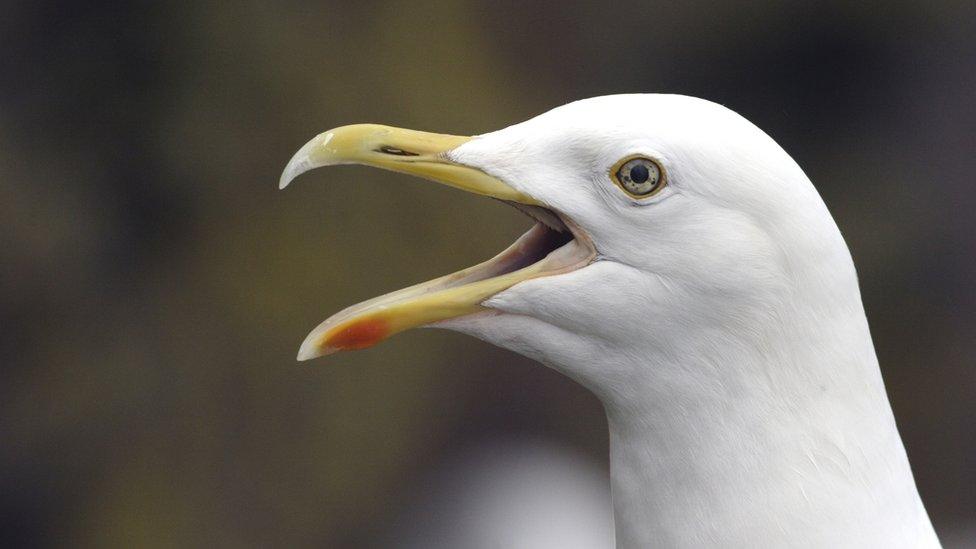
Gulls may behave aggressively because of a lack of previously easily available food sources
People living on the coast are being warned seagulls may be more aggressive due to a drop in food sources caused by the coronavirus lockdown.
As the public has been told to stay at home during the virus, outbreak visitor numbers to the seaside have dropped.
As a result, East Riding of Yorkshire Council is warning that gulls may be behaving more aggressively than usual.
It said: "Residents are being advised seagulls may be more hungry than normal and may behave aggressively."
Stephen Eccles from the council said because the number of people out and about in the area had fallen the birds were not finding easy sources of food.
He said: "Our main resorts are Bridlington, Hornsea and Withernsea.
"It was busy on the first weekend (of the virus restrictions) but not on the last weekend."
Mr Eccles said: "Coastal residents are being advised that, due to a lack of food sources, seagulls may be more hungry than normal and may behave aggressively.
"So residents are asked not to eat on the seafront areas, to encourage the birds to fend for themselves away from towns."
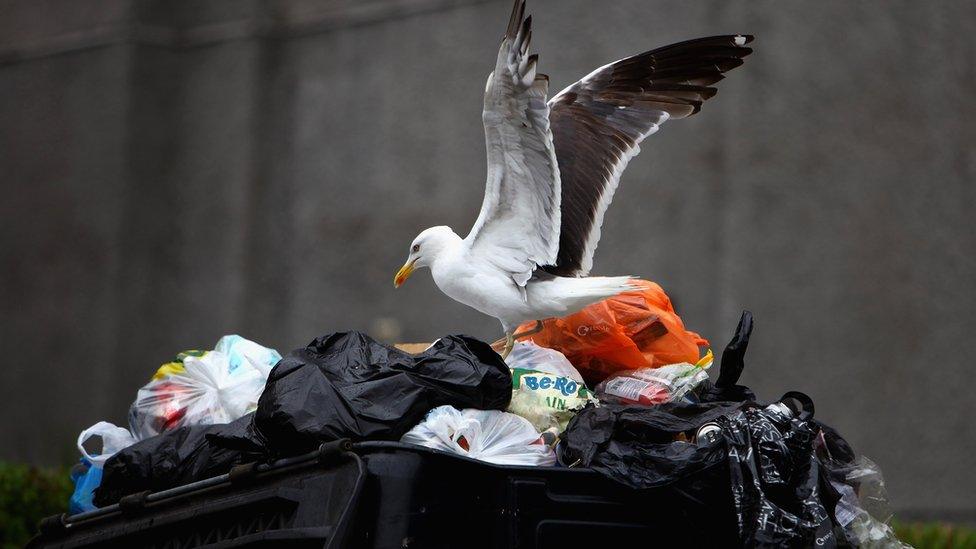
Gulls have become accustomed to accessing easy food sources
The East Riding of Yorkshire Council said that Herring gulls were creatures of habit and pass the local knowledge on to their young,
"If we have a generation of young birds who have not relied on human food, we may be able to break the cycle and people will be able to eat on the seafront without being "mugged".
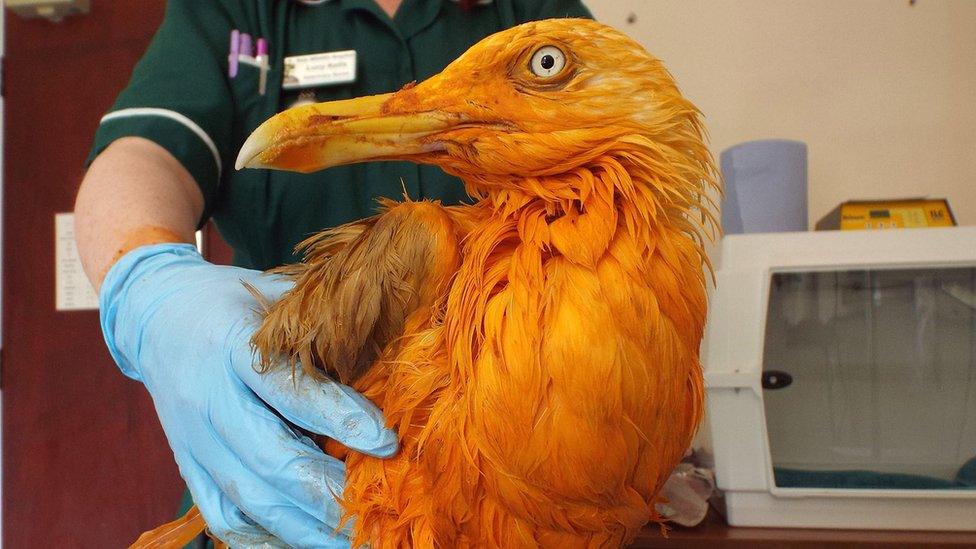
A seagull in south east Wales turned bright orange after falling into a vat of chicken tikka masala in 2016
Kirsty Salisbury, East Riding of Yorkshire Council general manager (coastal), said : "Stay home, stay safe - don't eat on the seafront promenades and beaches, especially around the harbour in Bridlington, which is the seagulls' natural environment."

LIVE: Latest updates
A SIMPLE GUIDE: What are the symptoms?
NEW GUIDANCE: What must I do?
NEW RESTRICTIONS: What are they?
LOOK-UP TOOL: Check cases in your area
MAPS AND CHARTS: Visual guide to the outbreak

- Published8 August 2019
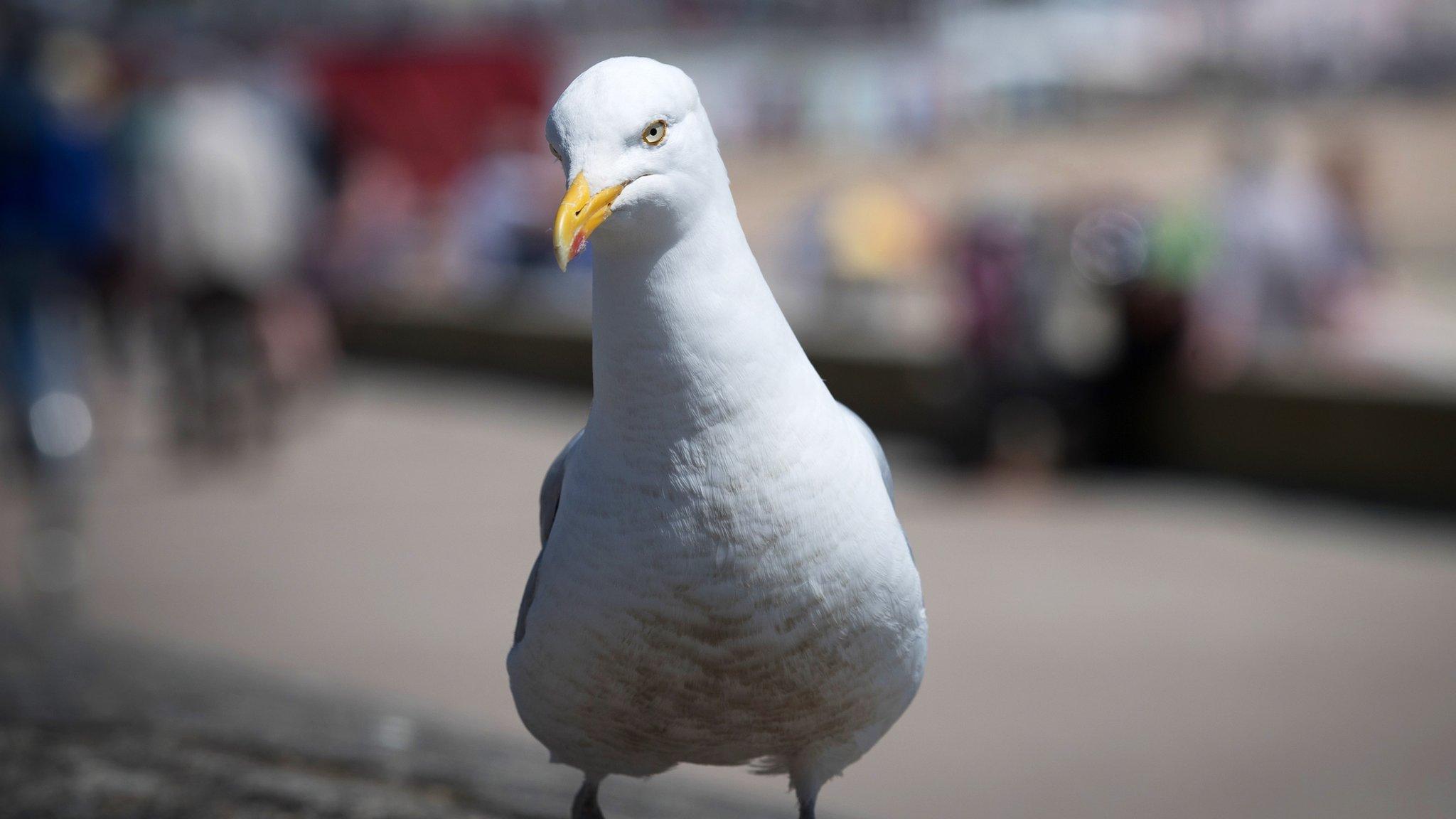
- Published16 September 2019

- Published24 July 2019
